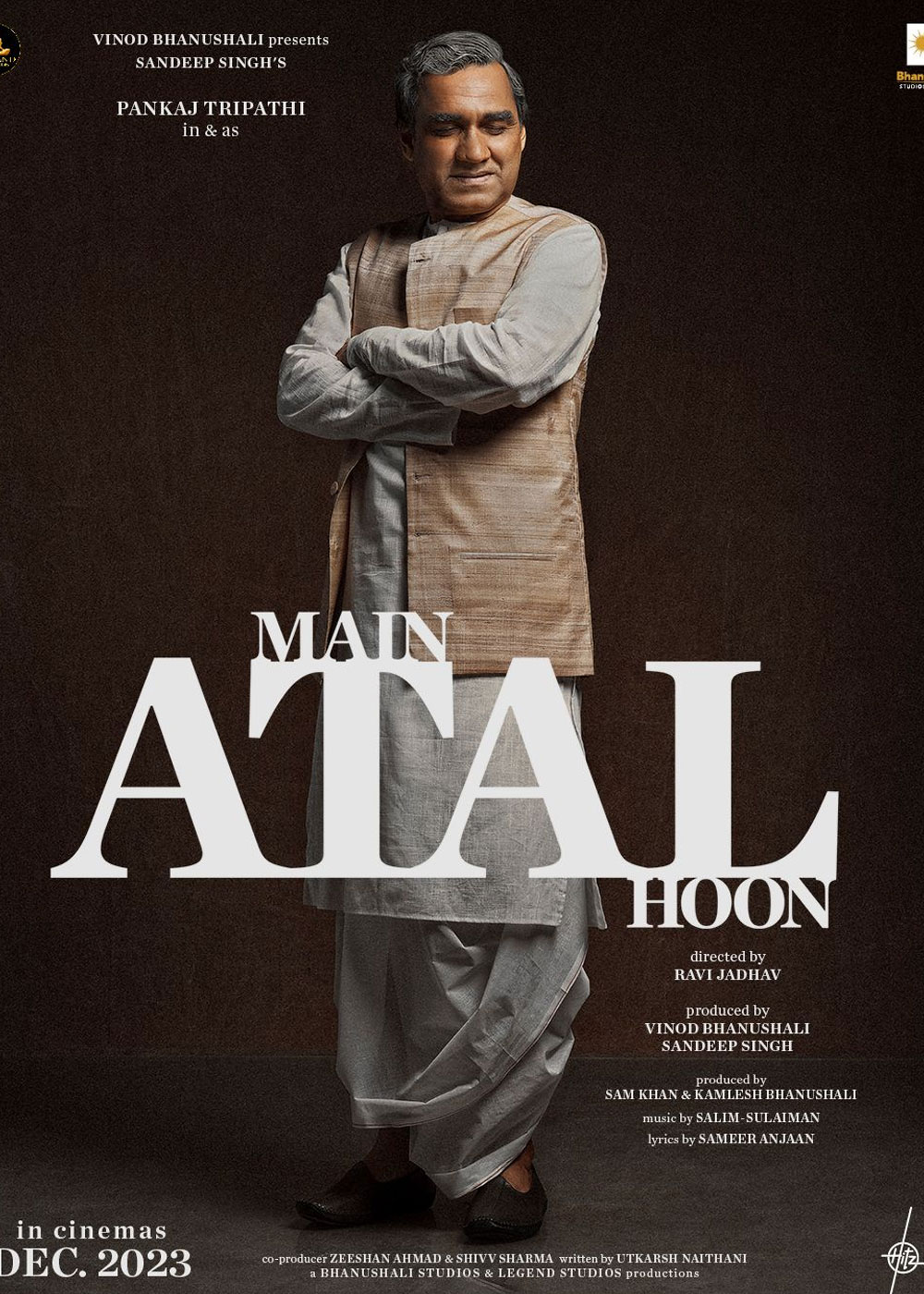CAST: Pankaj Tripathi, Piyush Mishra, Daya Shankar Pandey, Pramod Pathak, Raja Sevak
DIRECTOR: Ravi Jadhav
Streams on Zee5 Global
“Main Atal Hoon” serves more as an adulatory homage than a critical evaluation, sketching the vibrant life of Atal Bihari Vajpayee in broad, sweeping strokes. Drawing from journalist Sarang Darshane’s biography, the film offers a window into the charming figure instrumental in the ascendancy of right-wing politics in India.
It delves into Vajpayee’s early years as a poet on the Yamuna’s shores, his empathy for the laborers behind the Taj Mahal’s construction, and a significant moment on Independence Day when a young Vajpayee learns of language barriers to national unity from a tea vendor’s inability to comprehend Nehru’s English speech. Vajpayee’s emergence as a proponent of an alternate vision for India is well noted, but the narrative eventually becomes a mundane recount of his public speeches and accomplishments, information readily accessible online.
The film prefers a panoramic view, laced with unreserved praise for Vajpayee, portraying him as a figure who reconciled liberal democracy with Hindutva ideology without truly exploring the evolution of his conservative ideas or his impact. It sidesteps potentially contentious areas, including Vajpayee’s views on Gandhi, his relationships across the political divide, and any ideological conflicts within the RSS.
Pankaj Tripathi excellently captures Vajpayee’s charismatic essence, showcasing the oratory prowess and diverse expressions that mirrored the former Prime Minister’s serenity and steadfastness amidst turmoil, earning him the descriptor “Teflon-coated.” Interestingly, Tripathi’s portrayal does not rely on physical transformation to age Vajpayee, yet this hardly detracts from his overall compelling performance.
The portrayal suffers due to writing that, while earnest, comes across as superficial and fails to invigorate the narrative. Lackluster sound and production design further hinder the actor’s efforts. Director Ravi Jadhav opts for a cautious approach, barely venturing beyond the public persona of Vajpayee as described by some of his contemporaries, without critically examining the nuanced or contradictory positions Vajpayee might have taken on contentious matters. The film touches upon Vajpayee’s complex stance only briefly, such as in the Lucknow speech where he hinted at levelling the ground just before the Babri Mosque demolition, followed by his expression of regret after the ensuing communal violence across the country.
Additionally, Jadhav offers a glimpse into Vajpayee’s private life, especially his relationship with Raj Kumari Kaul, portrayed alongside Pankaj Tripathi by Ekta Kaul, highlighting Vajpayee’s self-description as a bachelor, not a celibate. However, in these moments, the film shies away from exploring the deeper interplay between Vajpayee’s poetic sensibilities and his political ideologies, preferring to maintain a polished, uncontroversial facade.
The film’s broad perspective is imbued with unreserved praise for Vajpayee, skimming over the complexities of his ideology without dissecting the evolution of his conservative beliefs. Director Ravi Jadhav opts for a conservative portrayal, avoiding a deeper dive into Vajpayee’s views on Gandhi, his friendships across the political spectrum, and the challenges his liberal stances faced within the RSS.
Pankaj Tripathi’s portrayal of Vajpayee is laudable, capturing the statesman’s magnetism and oratorical prowess. Tripathi reflects Vajpayee’s composure and resilience without resorting to physical transformation, maintaining the essence of Vajpayee’s character through his performance.
The biopic, directed by Ravi Jadhav and featuring a talented cast, runs for 137 minutes, focusing on Vajpayee’s life and political career. Despite Tripathi’s efforts, the narrative is hampered by superficial writing and lackluster production values. The film touches on Vajpayee’s complex positions with instances like the Lucknow speech and his personal life revelations but fails to probe deeply into the interplay between his poetic inclinations and political ideologies.
The depiction of Vajpayee’s gastronomic preferences and international travels is notably absent, along with a critical examination of his relationships within the Jan Sangh and Sangh Parivar. The narrative glosses over significant political movements and reports, offering a selective portrayal of Vajpayee’s political journey. While some performances stand out, others fall into caricature, with the script not adequately exploring the dynamics between key figures in the BJP. The film does acknowledge Vajpayee’s critiques of Congress and his respect for Nehru, offering moments of ideological reflection reminiscent of a less polarized era. Yet, it remains a missed opportunity to delve deeper into the nuances of Vajpayee’s legacy, ultimately providing a surface-level recounting of his contributions and challenges.





